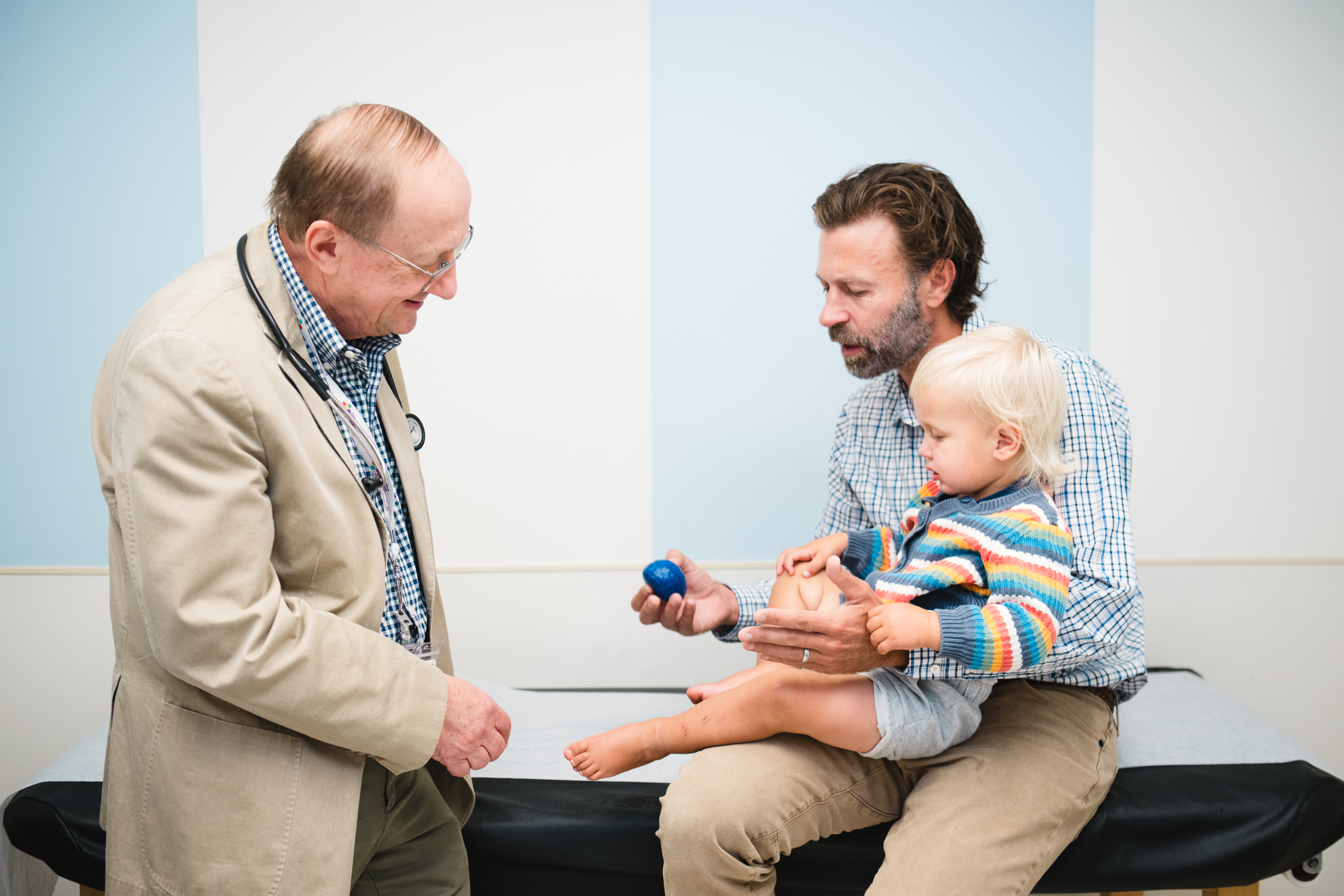Care That Truly Cares
One constant throughout their journey has been their care team at Connecticut Children’s. Jaime describes Dr. Acsadi and their neurology nurse, Nanci Stolgitis, as compassionate and thoughtful, always checking in not just on Jonah but on how the entire family is coping.
“They made us feel like we weren’t just another family,” Jaime says. “They were always so excited to see Jonah. We felt seen.”
Jonah now sees his neurologist every six months and completes bloodwork in advance of each visit. His care plan is tailored to both medical needs and what feels right for the family.
Looking Ahead With Gratitude
Today, Jonah is a vibrant, adventurous toddler who loves to dance, wave at everyone, and follow his big sisters everywhere. He’s joyful, social, and curious—thriving in every way.
“We are so thankful for the numerous Pompe patients and families who came before us. Without their efforts the current treatment and screening would not be available to us,” Jaime says.
It hasn’t always been easy. Jaime describes Jonah’s infancy and first year as a time full of unknowns, countless doctors’ appointments, emotional strain, and moments of fear. As parents, they were very fearful in the beginning. The unknown is scary. One thing that proved invaluable during that time was connecting with other families going through the same thing. Hearing their perspectives and learning from their experiences brought a sense of comfort and reassurance. Through it all, Jaime’s outlook began to shift in profound ways.
“This whole experience has been completely eye-opening to the world of rare diseases,” she says. “There have been so many new perspectives I’ve been able to take. I’ve never felt more gratitude than I do now.”
For other families navigating the complexities of a rare disease diagnosis, Jaime offers heartfelt advice:
“Give yourself grace and time to process. Connect with other families as much as possible—whether through Facebook, phone, or in person—because knowledge is power. I’m truly grateful for the knowledge newborn screening provided, giving Jonah the opportunity for an early diagnosis and the best care possible.”
A Comprehensive Approach to Health
Jonah’s story is one example of how Connecticut Children’s bridges community and clinical care in a more integrated way to support families. Through the Office for Community Child Health, programs and initiatives focused on innovation, direct service, education, and research work in close partnership with clinical teams and service lines across the health system. This collaborative approach helps identify needs early, strengthens connections to care, and supports children and families not just in moments of crisis, but throughout their developmental journey.










